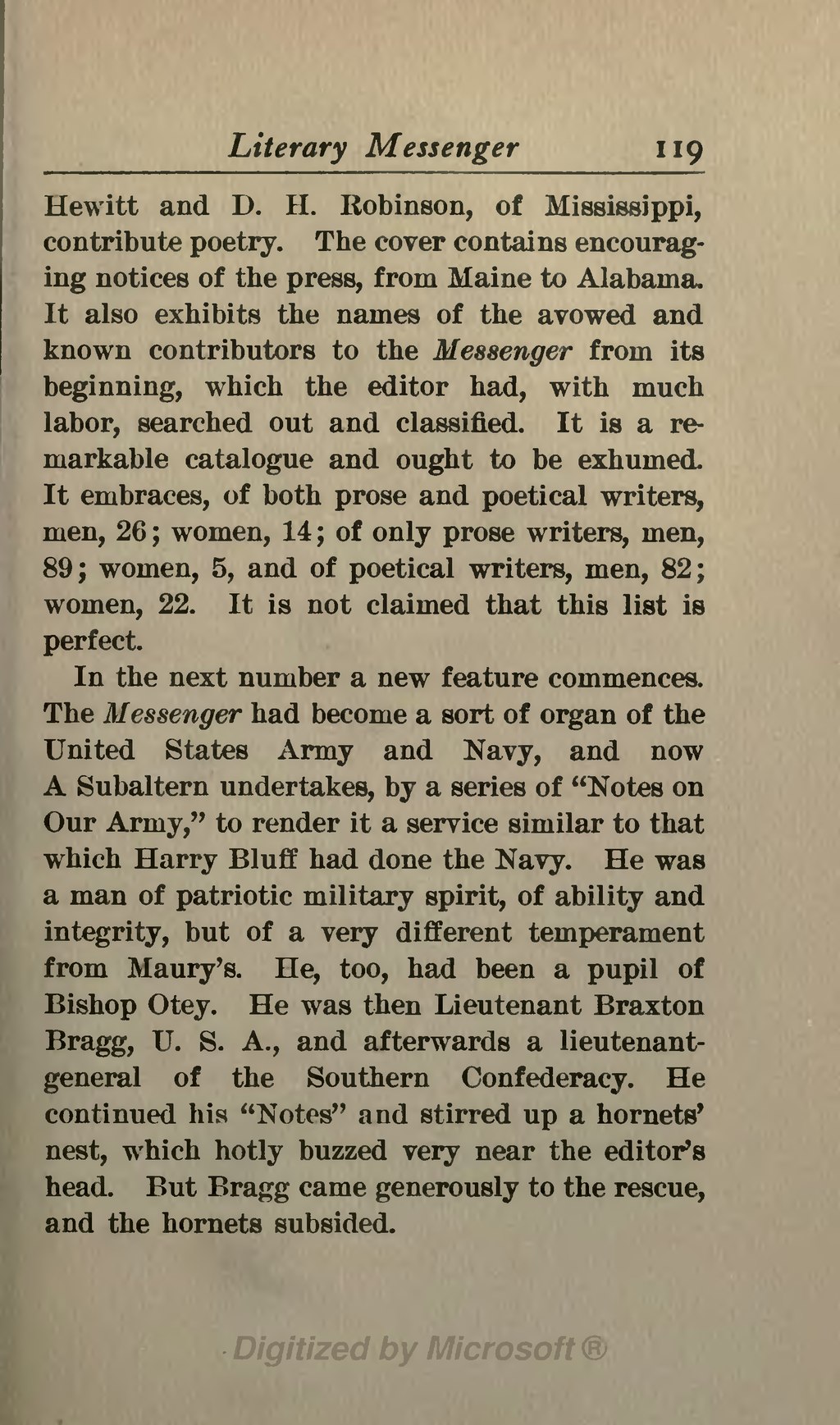Hewitt and D. H. Robinson, of Mississippi, contribute poetry. The cover contains encouraging notices of the press, from Maine to Alabama. It also exhibits the names of the avowed and known contributors to the Messenger from its beginning, which the editor had, with much labor, searched out and classified. It is a remarkable catalogue and ought to be exhumed. It embraces, of both prose and poetical writers, men, 26; women, 14; of only prose writers, men, 89; women, 5, and of poetical writers, men, 82; women, 22. It is not claimed that this list is perfect.
In the next number a new feature commences. The Messenger had become a sort of organ of the United States Army and Navy, and now A Subaltern undertakes, by a series of "Notes on Our Army," to render it a service similar to that which Harry Bluff had done the Navy. He was a man of patriotic military spirit, of ability and integrity, but of a very different temperament from Maury's. He, too, had been a pupil of Bishop Otey. He was then Lieutenant Braxton Bragg, U.S.A., and afterwards a lieutenant-general of the Southern Confederacy. He continued his "Notes" and stirred up a hornets' nest, which hotly buzzed very near the editor's head. But Bragg came generously to the rescue, and the hornets subsided.

